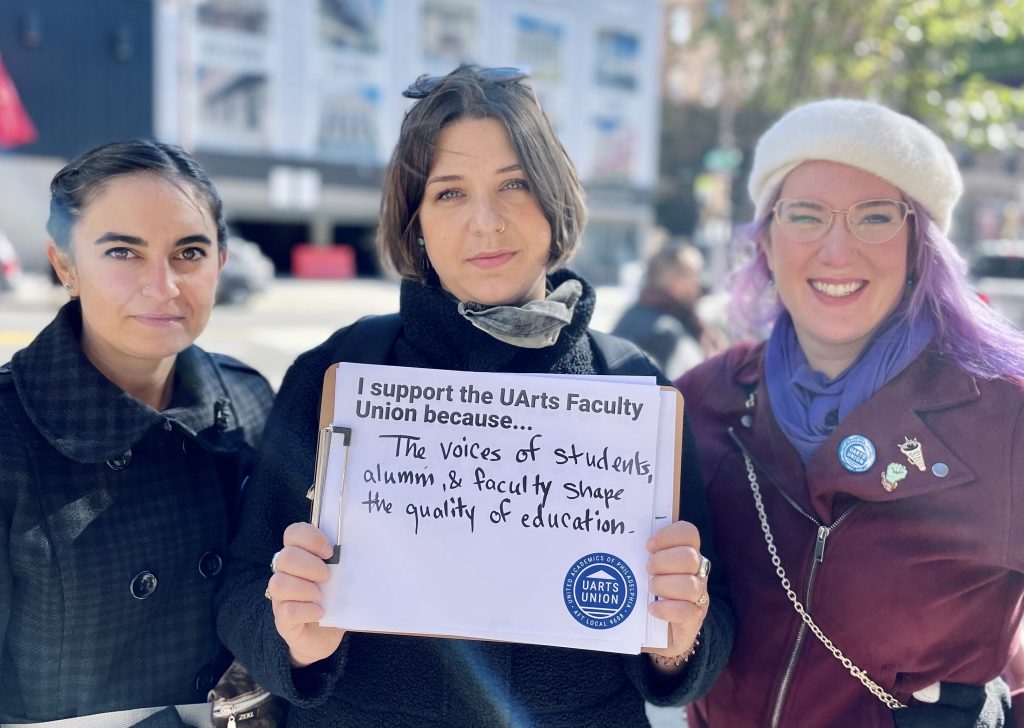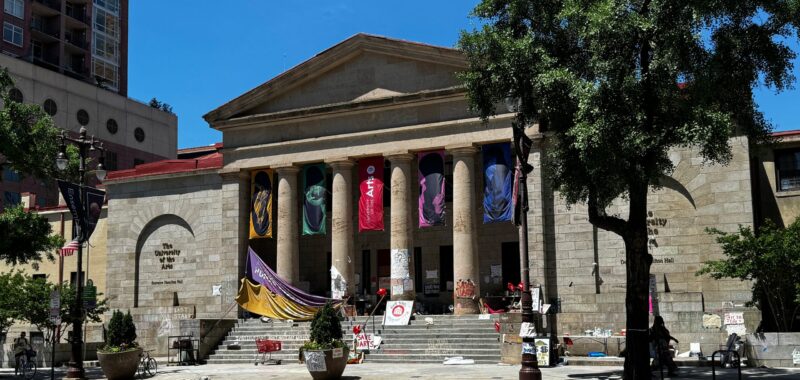Philadelphia’s nearly 150-year-old University of the Arts (UArts) has filed for Chapter 7 bankruptcy after closing this summer with one week’s notice. The process will allow the school to sell its real estate holdings in the Center City neighborhood, estimated in value at $87 million, in an effort to meet $46 million in bond debt, according the the Philadelphia Inquirer.
The filing, with the U.S. Bankruptcy Court in the state of Delaware, indicates that the school has between $50 million and $100 million in assets and between $50 million and $100 million in debt. It also indicates that the school’s attorney in this matter, Delaware’s Richard G. Placey, has accepted $1.3 million in legal fees.
When the school closed, it released a statement saying that “UArts has been in a fragile financial state, with many years of declining enrollments, declining revenues and increasing expenses,” adding that “Despite our best efforts, we could not ultimately identify a viable path for the institution to remain open and in the service of its mission.” The school faced major infrastructure repairs that could not be covered by revenue, according to a statement from the board.
Many in the community, however, learned of the closure when they read about it in the Philadelphia Inquirer. They have continued to be frustrated by ongoing silence from the school’s leadership about what led to the sudden closure, which came with no plan to transition students to other schools.

Philadelphia’s University of the Arts faculty at a union rally. Photo courtesy of Philadelphia’s University of the Arts Faculty.
The school’s June 7 closure was followed with a flurry of activity, including protests by faculty, staff, and students. The Middle States Commission on Higher Education, which accredited the institution, immediately revoked the school’s accreditation. Its president, Kerry Walk, quickly resigned. The Pennsylvania attorney general soon announced a review. The union representing former faculty and staff filed charges of unfair labor practices. UMB Bank made a demand for immediate repayment of more than $50 million in debt.
The United Academics of Philadelphia, which represents unionized faculty and staff, released a statement on Friday, saying:
The Board of Trustees at UArts, led by Board Chair Jud Aaron, has chosen at every turn to obfuscate the truth and forestall all consequences of their disastrous mismanagement of the university. This filing comes as former students, staff and faculty continue to struggle with the damage done to their educations and careers, and while the UArts Board has neglected its legal, contractual, and moral obligation to negotiate severance payments for workers affected by UArts’ collapse. We will fight to make UAP members whole using every legal avenue available—the priority should not be bondholders or real estate developers, but the flesh-and-blood communities whose lives were upended by this disaster.
The school’s closure came after the disastrous closings of other art schools, or at least their significant diminishments. The Pennsylvania Academy of Fine Arts (PAFA) will cease its degree-granting programs at the end of the 2024–25 academic year. (Ironically, UArts had planned to take on some former PAFA students.) In 2024, the 150-year-old San Francisco Art Institute filed for Chapter 7 bankruptcy. The Vermont College of Fine Arts, Memphis College of Art, and the nationwide network of Art Institutes have also closed in recent years.
Other schools have merged with larger entities, including the Corcoran College of Art + Design becoming part of George Washington University in 2014 and the School of the Museum of Fine Arts in Boston becoming part of Tuft’s University in 2016.
UArts’s sudden closure had led to talks with Temple University about a possible merger; Temple publicly ruled that out in August. About half of the school’s $63 million endowment was donated by the Hamilton Family Charitable Trust, which disapproved of the funds going to Temple.
UArts has petitioned a court to distribute its endowment to the 12 institutions who took on its former students, the Inquirer reports. Some 359 of those students have gone to Temple, meaning 44 percent of the endowment would go to that university for scholarships for former UArts students. It is unclear whether the Hamilton Trust would dispute this disbursement of the funds, but the organization did tell the Inquirer that its position had not changed.

